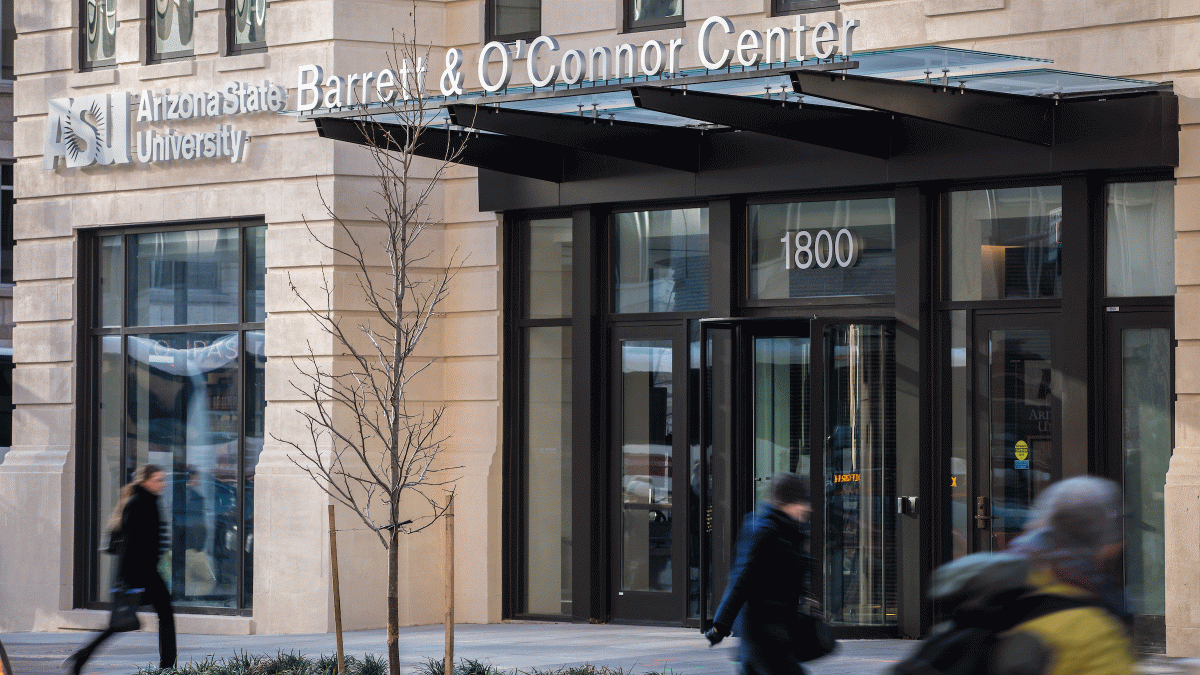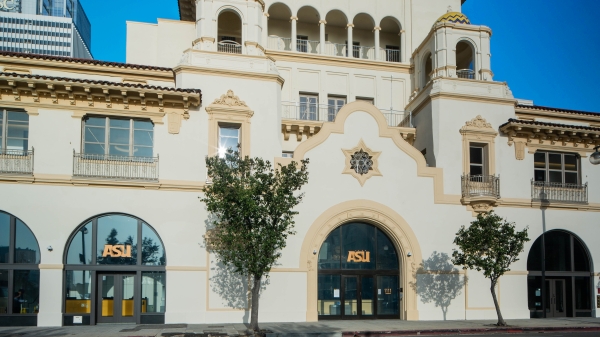Foreign policy leaders discuss Georgia's potential acceptance to NATO at McCain Institute

Expanding self-determination, ensuring national sovereignty and nurturing democratic norms and institutions in new and transitioning democracies have long been foreign policy goals of the United States and its allies in the West.
Members of the American foreign policy community gathered to discuss regional hotspots related to these goals at Arizona State University’s Barrett O’Connor Center in Washington, D.C., on Sept. 3. The dinner, hosted by the McCain Institute for International Leadership, focused on security concerns in the Caucasus region and Georgia’s potential entrance into NATO.
“This discussion with representatives from Congress, the executive branch and think tanks and academia is critical for maintaining the strong account of Georgia's NATO-integration process,” said David Bakradze, the ambassador of Georgia to the United States. Georgia first expressed interest in joining NATO in 2008, though its potential membership has been opposed by some in the region, including Russia.
“We need to be brave and strong, and we need to do what is right, and we need to get Georgia into NATO,” said Sally Painter, co-founder of Blue Star Strategies, an international relations firm based in Washington, D.C.
Ambassador Bakradze regarded the evening as one part of a larger effort to win support for Georgian membership.
“Georgia will maintain its strategic readiness for its membership, because geopolitics change,” he said. “And I am really confident that at some point we will have the geopolitics in Europe when all the member states on a concessional basis will support Georgia's membership in NATO.”
Painter emphasized that Georgia will need to have advocates to successfully join NATO.
“Right now, we need to get a whole new generation of young people focused on NATO and understand that the most important relationship is the trans-Atlantic relationship,” Painter said. “And we, as the trans-Atlantic countries, when we get together and agree, we can solve any issue, whether it's North Korea or Iran or climate change.”
Luke Knittig, director of communications for the McCain Institute, also had high hopes for the dinner. He believed that face-to-face conversations and in-person convenings were more important than ever for accomplishing increasingly complex foreign policy objectives.
“You can already see people striking relationships, people that have never met, growing and bonding and becoming connected, and that's happening right here at the Barrett O'Connor Center,” Knittig said. “And that's how you get results. That's how you get outcomes — when you have people that are interested in progress getting to know each other. Together, they can find a way.”
More Law, journalism and politics

School of Politics and Global Studies director's new book explores mass violence
Why do people commit atrocities and why are certain groups, including religious and ethnic, more vulnerable to large-scale…

ASU faculty contributing to improvement of Wikipedia
Many academics have a love-hate relationship with Wikipedia. While the website has information about almost anything you can…

ASU Law students gain vital experience through Los Angeles location
Students at the Sandra Day O’Connor College of Law at Arizona State University may be concentrated in the school’s downtown…